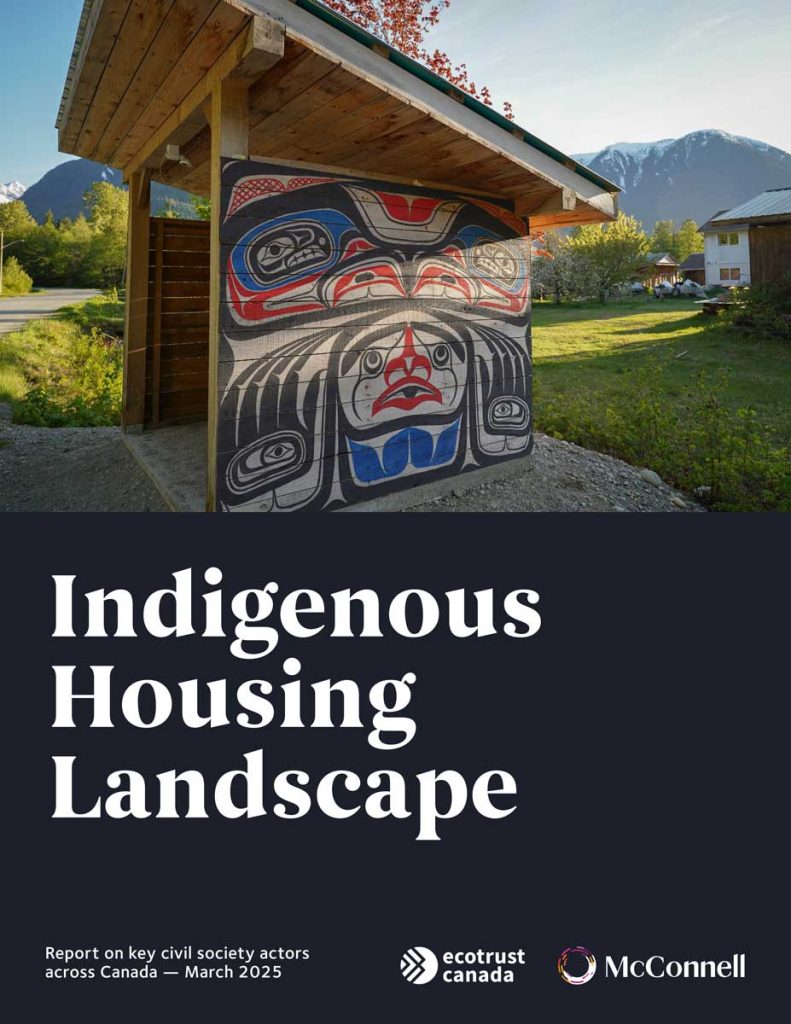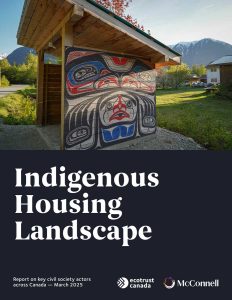Executive Summary
This report provides a broad overview of the Indigenous housing ecosystem across Canada, with a focus on the civil society organizations that are making significant contributions—particularly in rural and remote regions, as well as certain demographic areas of concern for housing accessibility. Through a short-term yet in-depth research process involving a grey literature review and 10 informational interviews with key thought-leaders, we mapped the major actors in Indigenous housing and examined how they are connected demographically and geographically. Our findings underscore that while funding remains critical, sustainable and culturally relevant housing solutions depend on community-led governance, holistic approaches to “home” and well-being, and closer collaboration between government, Indigenous leadership, and civil society groups.
Central to this report is the recognition that “housing” should be defined in a holistic manner, encompassing not only physical structures but also the cultural, spiritual, and community supports necessary for long-term well-being. Although pockets of innovation exist – including modular housing initiatives, apprenticeship programs, and cross-sector partnerships – chronic capacity gaps, slow-moving bureaucracy, and a disconnect between funders and on-the-ground realities continue to impede progress and Indigenous housing remains in crisis. The recommendations laid out in this report emphasize investing in Indigenous-led decision-making, fostering capacity-building for local housing managers, providing wrap-around services for individuals with complex needs, and establishing collaborative funding models that prioritize long-term solutions over short-term projects. Collectively, these steps can encourage lasting, community-centered solutions that support holistic housing as not only part of a broader wellness paradigm but also as part of a land-based economy that provides for life.


